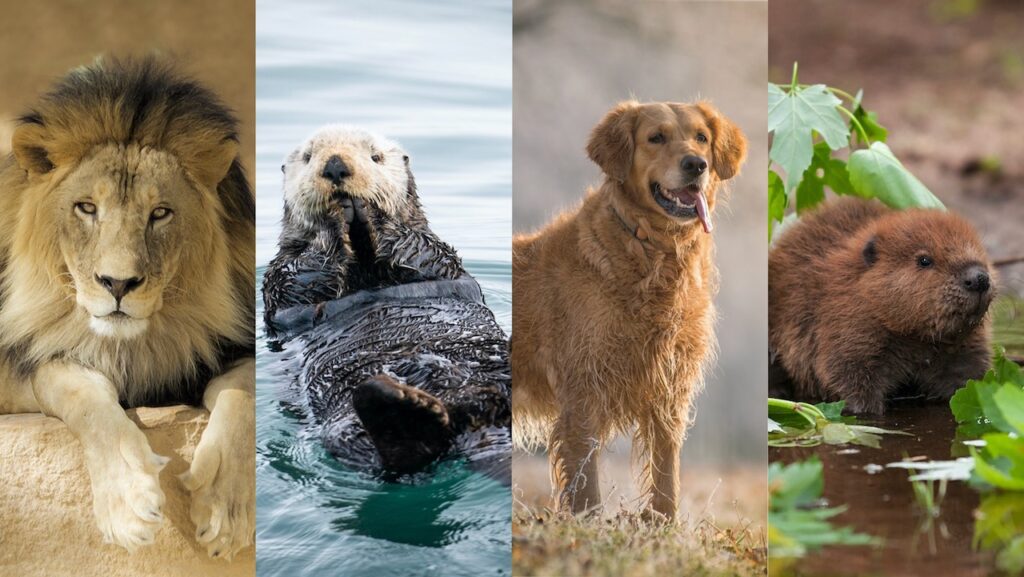
What is the Golden Retriever Animal Personality Type?
Golden Retriever Animal Personality Type people are warm, great listeners, incredibly empathetic, and supportive.
Golden Retrievers Characteristics
- Calm approach
- Relaxed posture
- They are sitting or leaning when possible.
Basic Disposition
Does Their Part Cooperate with Others to Get the Job Done
- Slow-paced
- People-oriented
- Projects-oriented
Decision Making – Relational
- Makes decisions more slowly
- Wants input from others
- Often yields to others’ input
Motivated by
- Good relationships
- Appreciation of others
Basic Desires
- Have no conflict, and keep the peace!
- Quality relationships
- Freedom to work at own pace.
Needs
- They need security.
- A relaxed and agreeable environment free of conflict.
Fears
- Loss of Financial Security.
- Loss of Emotional Security.
- Sudden Change.
Strengths
- Patient
- Easy-going
- Agreeable
- Team player
- Enjoys routine
- Stable
- Reliable
- Dependable
- Supportive
- Empathetic
- Compassionate
- Sensitive to the feelings of others
- Tremendously loyal
- Puts people above projects
- Peacemaker
Weaknesses
- Indecisive
- Over-accommodating
- May sacrifice results for the sake of harmony
- Slow to initiate
- Avoids confrontation even when needed
- Tends to hold grudges and remember hurts inflicted by others
- Fears change
- Misses opportunities
- They stay in a rut
- They are easily hurt
Get depressed when
- Life is entirely of conflict.
- They have to face a personal confrontation.
- No one wants to help, and the buck stops with them.
Leadership
- They keep calm, relaxed, and collected.
- Don’t make impulsive decisions.
- They are well-liked and inoffensive.
- They won’t cause trouble.
- But don’t often come up with brilliant new ideas.
Work Valuablity
- They cooperate and are a calming influence, keep the peace, mediate between contentious people, and objectively solve problems.
Under Pressure or Tense Situations
- Gives into the opinions, ideas, and wishes of others
- Often too tolerant
Recovery
- Nothing Time
Time Management
- They focus on the present.
- Devotes lots of time to helping others and building relationships.
Likes
- People who will make decisions for them recognize their strengths, not ignore them, and give them respect.
Dislikes
- People who are too loud and pushy and expect too much of them.
Advice
- Learn to say no and confront.
- Set goals and become self-motivated.
- Be willing to do more and move faster than expected.
- Face your problems as well as others.
Golden Retriever Communication Style
- They are good listeners.
- They provide an empathetic response.
- They want you to be cooperative and pleasant.
- Please provide information on how it will affect their circumstances.
- Show personal interest and support their feelings.
- Don’t push and move along slowly.
- Show that you are listening.
- Assure them that you stand behind any decisions.
Golden Retriever Personality Type cross-reference
- Keirsey Type – Artisans
- Temperament Type – Sanguine
- DISC Type – Steadiness
- Socio-Communicative Type – Amiable
- True Colors – Orange
- Color Code – Yellow
- Personality Compass – South
- Occupational Type – Conventional
- Learning Type – Reflector
- Leadership Type – Accommodator
MBTI Personality Types (xSxP) – Sensing and Perceiving
Enneagram Types
- Type 2 – The Helper (ESFP, ISFP)
- Type 6 – The Loyalist (All Sensing)
- Type 7 – The Enthusiast (ESTP, ESFP)
- Type 9 – The Peacemaker (ISFP)
Golden Retriever Personality Type Careers
What are the Animal Personality Types?
Gary Smalley was an American family counselor and author of many books on family relationships. He characterized the Four Core Personality Temperaments as Animals, and each Animal Type describes how a person naturally responds toward others in daily life and work situations.
The Animal Personality Type does not reveal anything right or wrong about an individual. Instead, it explains how naturally you will act in ways specific to that type of Temperament.
He characterized the Choleric Temperament as Lions, the Sanguine Temperament as Otters, the Phlegmatic Temperament as Golden Retrievers, and the Melancholic Temperament as Beavers.

Personality Temperaments, Traits, and Types
Personality Temperaments, Personality Traits, and Personality Types are used in Psychology to discuss a person’s Personality, a collection of Emotions, Perceptions, and Actions that interact with each other, regulate themselves, and shape a dynamic system that forms a person’s Behavioral Patterns.
Your inherited traits (your personality Temperance) and acquired traits (such as education, socialization, and other various pressures and aspects) form your Personality.
A Personality Type identifies a specific collection of Traits, both learned and natural, that comprise a broad, general Personality Classification—a way of labeling a collection of traits and behaviors.
A Personality Trait remains consistent and stable over time, which means you exhibit the same pattern across different situations and throughout your life.
Three criteria characterize Personality Traits: (1) consistency, (2) stability, and (3) individual differences. For example, if you are talkative at home, you also tend to be talkative at work. And if you were talkative at age 20, you would still be chatty at age 40.
Personality Temperament is your “Naturally Intuitive” biological Trait. These Traits are partly inherited from your genes and partially determined by your brainstem, which doesn’t change throughout your life. These are Natural Traits regarded as innate or inborn and not learned.
Your Personality Temperament is formed as an infant and is hard to modify, manipulate, or change because it is genetic. In some way or another, your inherited behavioral tendency will always be there.
Personality Traits are quantitative differences between people, and Personality Types are qualitative differences between people. The most crucial difference between the Trait Theory and the Type Theory is that the Type Theory views people’s characteristics as discrete categories. In contrast, the Trait Theory views these characteristics as a continuum.
For example, while a Type Theorist would claim that introverts and extraverts are two types of people, a Trait Theorist claims that extraversion is a gradient, and individuals can fall somewhere in the middle.
Your Temperaments, along with acquired Traits, form your Personality.



